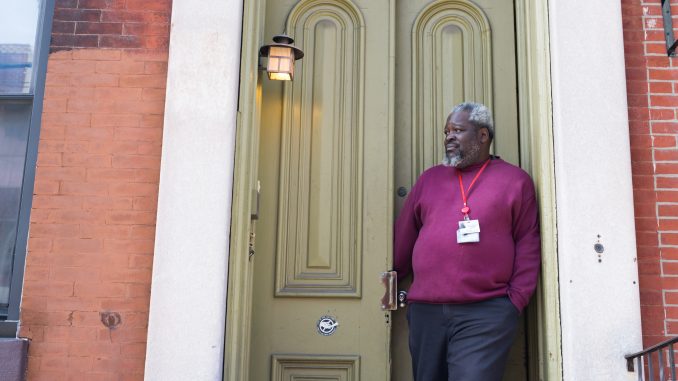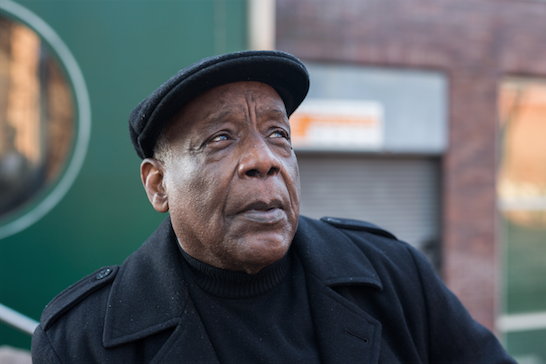
With the 2020 United States Census around the corner, Gabriela Raczka, an engagement manager with Philly Counts 2020, is working around the clock, training census volunteers and meeting with local officials and community leaders.
“There is a lot at stake here,” Raczka said. “Counting every person in the city is an ambitious goal but an important one.”
The census may have a vast economic and political impact on Philadelphia, according to Philly Counts, the agency tasked with conducting census operations across the city. For instance, the census impacts how much federal funding communities receive and how much representation they have in Congress, according to the Census Bureau.
Beginning in March, 95 percent of households across the country will be contacted by mail to complete the census, according to the Census Bureau. For the first time, the census can be taken online, although participants can still mail in the form or complete it over the phone.
Jacqueline Martin, who lives on 17th Street near Montgomery Avenue, said she plans to fill out the census this year but is not sure if younger people will.
“I have a 32-year-old daughter, and she doesn’t know anything about the census,” Martin said.
Census funding affects a wide range of social services and public works projects in the city. The Supplemental Nutrition Assistance Program, the Temporary Assistance for Needy Families and National School Lunch Program all rely on census-informed funding, according to Philly Counts.
Approximately 33 percent of families in the zip codes 19121 and 19122, which encompass Main Campus, marked themselves as having received Supplemental Security Income and/or cash public assistance income in the past 12 months in 2017, according to the Census Bureau.
Philadelphia loses $2,100 annually in federal funding for every uncounted resident, Raczka said.
“With so many dollars at stake, census participation is absolutely crucial,” said Conrad Weiler, a political science professor who worked on the census as an enumerator in 2010.
“There are 1,100, approximately, federal grant programs, most of which are based on population,” he added. “These affect virtually every function of government at the local level.”
But the communities which need aid the most can be the most difficult to count, Raczka said.
Last year, the census was thrown into controversy when the Trump Administration tried to insert a question asking respondents whether they were U.S. citizens, the Washington Post reported. Though the question was blocked by the Supreme Court, advocates say the public controversy has made members of immigrant communities more afraid to fill out the census, the Post reported.
Terry Holmes, who lives on 15th Street near Oxford, will fill out the census but does not think it matters because the government does not address housing issues in the area anyway, he said.
“It’s important due to the fact that we need to know what’s going on in the neighborhood, but does it mean anything,” Holmes asked. “That’s another subject.”
Holmes will not take the census online, he added.
“Having the physical copy is important to me,” Holmes said. “It means I thought about it and read it and considered it fully.”
John Frazier, who lives on Cecil B. Moore Avenue near 32nd Street, said he always fills out the census and he will fill out this year’s form in person.
“It’s important to know how many people we got,” he said.

For many students, 2020 will mark the first year they fill out the census. Instead of defaulting to where their parents live, college students should mark themselves as living where they sleep most often as of April 1, according to the Census Bureau.
In September, Philly Counts launched a “Census Champion” training program to inform students about how the census works and explain how they can raise awareness about it, according to a release from the agency.
Census Champion trainings were conducted at universities, including Temple, as well as community centers all across the city, according to the release.
“We’ve historically faced an extreme undercount in North Philadelphia,” Raczka said. “If college students don’t participate, we’ll be facing an even higher undercount. We need our college students to be empowered to participate and spread the word about the importance of the census to our community.”
Several students told The Temple News they did not know about the census or felt that it was not well advertised.
“Students may not be educated as to the importance of the census and how it determines representation in Congress,” said Philip Steinberg, a political science professor. “There is a lack of explanation, and students seem to be interested in other things.”
To increase outreach, the Census Bureau announced on Jan. 7 it was escalating efforts to recruit 500,000 workers to help with the census.
Anyone age 18 and older, especially recent high school graduates, college students, veterans, retirees, military spouses, seasonal workers and people who are bilingual are highly encouraged to apply, according to the Census Bureau.
Tracey Fitchett, who lives in South Philadelphia, said younger generations are not engaged in the census.
“I have five grandkids, and you know, they’re all adults but they never talk about the census,” she said.
“I think it’s very similar to voting,” she added. “It’s a responsibility.”


Be the first to comment